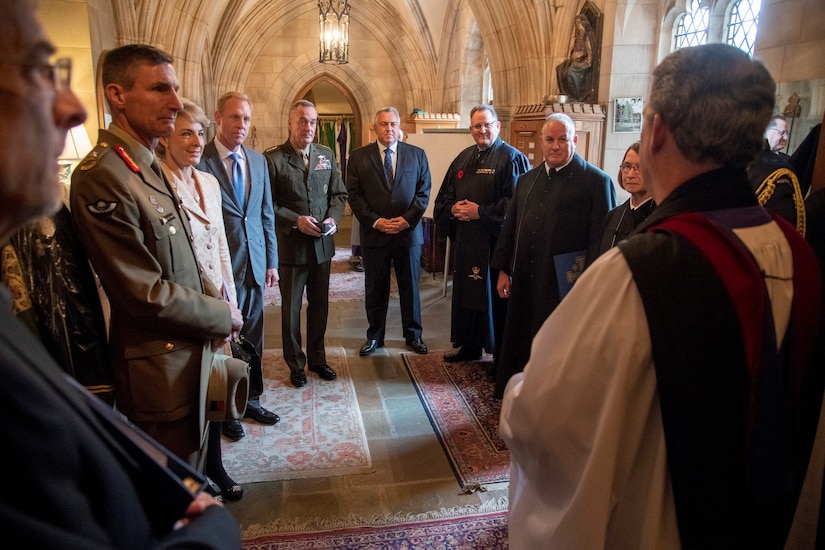By Jim Garamone, DoD News, Defense Media Activity
FORT MYER, Va. -- Being a “mate” in Australia has a whole
different connotation than in the United States.
Australians trust a mate implicitly. A mate is a person who
shares the last drink of water or the last bit of food or the last beer in the
six-pack.
A mate is always ready to help.
A mate shares values, and that is why the United States and
Australia celebrated 100 Years of “Mateship” yesterday morning with services at
the National Cathedral, followed by a special Twilight Tattoo here last night.
For the U.S. and Australian militaries, the idea of mateship
reaches to a higher level. On July 4, 1918, U.S. and Australian soldiers went
into combat together assaulting the German line on the Western Front. The
Australian soldiers were battle-hardened. The Americans were green. In one of
the few instances in World War I, American troops fought under the direct
command of another country. Australian and American soldiers literally fought
shoulder to shoulder at the Battle of Hamel. Platoons of Americans were
attached to Australian companies.
At the end of the textbook combined arms effort, there were
1,062 Australian casualties and 176 American.
Strong Bonds Through Various Conflicts
Marine Corps Gen. Joe Dunford, the chairman of the Joint
Chiefs of Staff, said that while mateship began at Le Hamel, it grew with each
conflict. “That mateship – that partnership – continued through World War II,
Korea, Vietnam, Desert Storm, Somalia, and – most recently – in Afghanistan and
Iraq,” he said at a reception before the Twilight Tattoo. “I know that all of
us assembled … are proud of what our nations represent and the strategic
significance of our relationship.”
Dunford cited incidents from World War II, Vietnam and
Afghanistan in which Australian soldiers worked with U.S. forces to uphold
their mutual values. “That is what mateship means to me -- it is my pride in
being associated with the Australian armed forces,” he said. “I can speak on
behalf of all Americans here in saying we are deeply proud of our bond and look
forward to the next 100 years of mateship.”
Deputy Defense Secretary Patrick M. Shanahan spoke of the
bond between the two nations at the memorial service earlier in the day. He
said the United States and Australia built an edifice as impressive as the
National Cathedral in their fight against tyranny in World War I and beyond.
That edifice, he said, was in Northern France.
“Its walls were not made of stone or wood, but of flesh And
blood,” he said. “Its mortar was the mud of the trenches. Its foundation [was
the] courage in young kids from Queens and Queensland, from Adelaide to
Appalachia.”
The bonds forged on the Western Front endured, and Australia
and the United States stand together in an interesting and complex world,
Shanahan said, adding that the relationship needs leaders who can deal with ambiguity,
uncertainty and change.
“Today we are stewards of the bond,” he said. “We live in an
interesting world [with] so much potential and so much risk. We will always
encounter challenges we cannot predict. But relationships like this help us get
through them.”









No comments:
Post a Comment